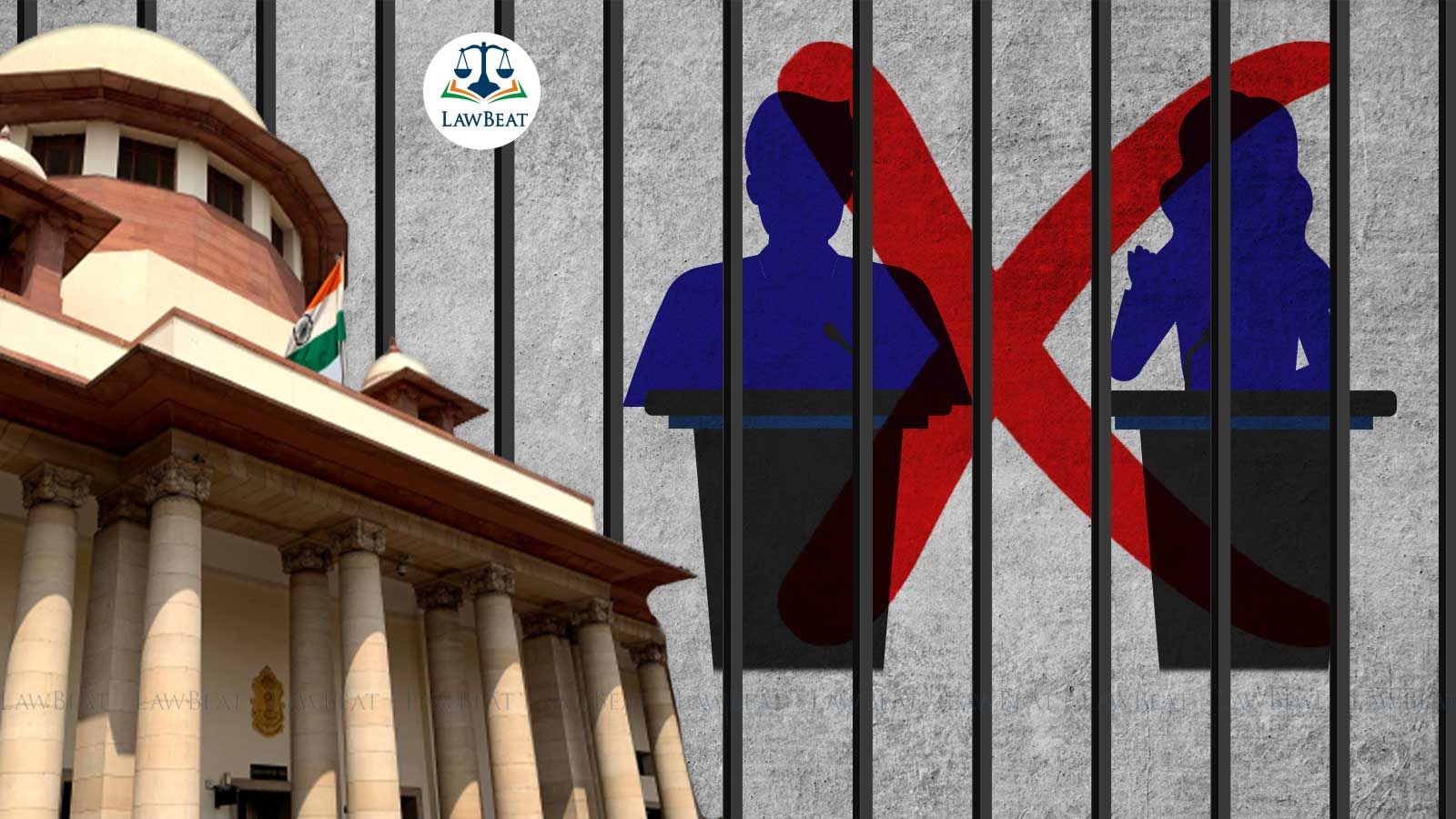Amicus Curiae Submits 18th Report In Plea Before Supreme Court Seeking Decriminalization Of Politics

The Supreme Court last year issued notice in the plea filed by Adv Ashwini Kumar Upadhyay which stated that 43% of the elected MPs in the 17th Lok Sabha declared criminal cases against them.
On May 3, 2023, Amicus curiae submitted the 18th report in the matter of Ashwini Kumar Upadhyay v. Union of India seeking directions for decriminalizing politics by debarring MP/MLAs charged with serious criminal offences.
The report seeks modification in the earlier order to the following extent:
- Presiding Officers of the MP/MLA Special Court may be transferred only after approval of the Chief Justice of the concerned High Court.
- The post of judicial officer be filled simultaneously with such transfer.
- No case should remain pending for final judgment at the time of such transfer.
A request was further made to expedite the trial of pending cases in terms of Para 26 of the 17th Amicus report with the modification as hereunder:
“The Chief Justices of each of the High Court shall review the number of judges required to preside over Special Courts MP/MLAs. Such Special Courts shall conduct trial in terms of section 309 CrPC, more particularly in terms of fourth proviso to sub-section (2) thereof.”
The Supreme Court last year issued notice in the aforementioned plea which avers that 43% of the elected MPs declared criminal cases against them.
“The facts constituting the cause of action accrued on 25.5.2019, when out of 539 winners of 17th Lok Sabha, 233 (43%) declared criminal cases against themselves. Out of 542 winners analysed after the 2014 Lok Sabha elections, 185 (34%) winners had declared criminal cases against themselves. Out of 543 winners analysed after the 2009 Lok Sabha elections, 162 (30%) winners had declared criminal cases”, the petition stated.
In the present report, status of eight High Courts namely, Calcutta, Madras, Bombay, Sikkim, Madhya Pradesh, Punjab and Haryana, Andhra Pradesh, and Telangana have been presented by the Amicus, with respect to the trial and disposal of criminal cases against MP/MLAs.
Further, the Calcutta High Court raised infrastructural issues in expediting the rate of disposal of such cases.
“…only after due approval from the appropriate Government, can the High Court go ahead regarding the construction/repair/renovation projects to the Government for administrative approval and sanctioning of the funds towards the projects,” an affidavit by the Calcutta High Court stated.
Earlier, Amicus Curiae Senior Advocate Hansaria sought following directions to facilitate the trial of criminal cases pending against MP/MLAs:
- The Courts dealing with cases against MPs/MLAs will exclusively try these cases. Other cases would be taken up only after trials of such cases are over. The trial would be conducted on a day to day basis in terms of Section 309 Cr.P.C. Necessary allocation of work would be made by the High Court and/or the Principal Sessions Judges of every district within two weeks.
- Both the prosecution and defence shall cooperate with the trial of the case and no adjournment shall be granted. In case, the public prosecutor and/or the prosecution fail to co-operate in the expeditious trial, the matter shall be reported to the Chief Secretary of the State who will take necessary remedial measures. In case, the accused delays the trial, his bail shall be cancelled.
- The trial court shall send a report on each of the cases where trial has been pending for more than five years before the respective High Courts, as to the reasons for delay and suggest remedial measures. The High Court shall consider these reports on the judicial side in the suo motu writ petitions registered in terms of para 18 of the order dated 16.09.2020 and pass appropriate orders to remove the stagnation of trial.
- The Central Government will provide funds for ensuring smooth functioning of Courts through virtual mode i.e. by facilitating availability of video conference facilities. The High Courts shall submit a proposal to the Law Secretary of the Government of India in this regard as to the funds required, which shall be made available by the Central Government within two weeks of the proposal. The funds released by the Central Government will be subject to final adjustment with the State Government per sharing pattern.
- A Monitoring Committee may be constituted, headed by a former Judge of the Supreme Court or Chief Justice of a High Court to monitor the investigation of cases pending before the Enforcement Directorate, Central Bureau of Investigation and National Investigation Agency in terms of submission recorded in the order dated 25.08.2021.
- The trial courts may be directed to pass a specific order in all pending cases that the benefit of the Witness Protection Scheme 2018, has been made available to the witnesses in terms of the order dated 04.11.2020.
Also Read: No Criminal Cases Against Members Of Legislatures Can Be Withdrawn Without Prior Sanction Of The Concerned High Courts: Supreme Court
Case Title: Ashwini Kumar Upadhyay v. Union of India, WP (Civil) No. 699 of 2016
